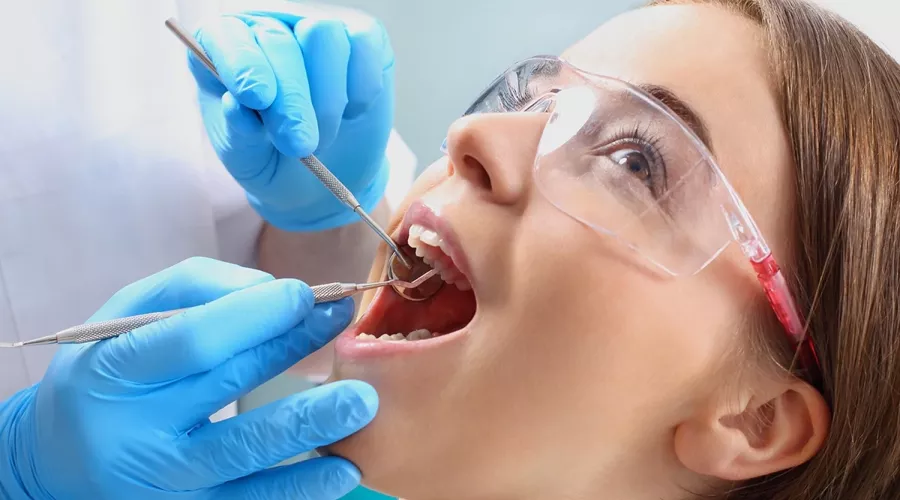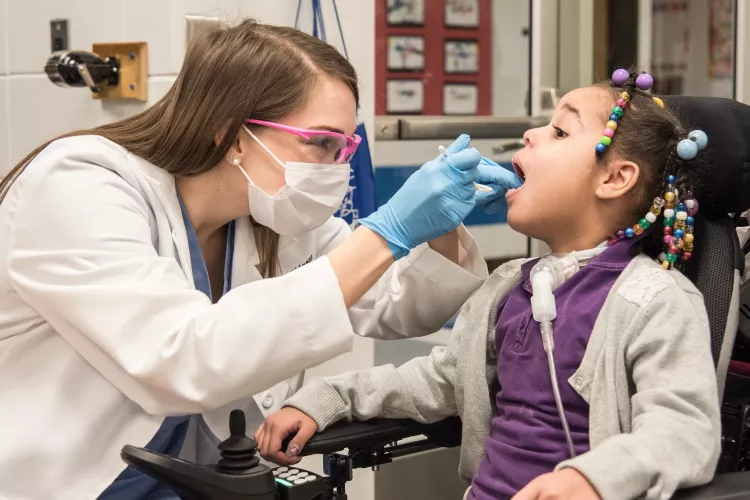Checking in: Have you had a dental checkup lately?
August 26, 2024
A regular dental checkup should be considered an important aspect of overall health. The exam is non-invasive and relatively simple, yet it can have long-lasting benefits.
What happens during dental checkups?
During a dental checkup, the dentist or hygienist will talk to you about your medical history and perform a thorough examination of your teeth, gums and mouth. They’re looking for signs of cavities, gum disease, cancer and other issues. They might also check the alignment of your bite and your jaw to make sure things are functioning properly.
You can also expect to have some X-rays taken at least once a year. X-rays check for things that are not visible to the naked eye such as cavities and bone loss. Common types of dental X-rays are:
- Bitewing X-rays – These are close-up images of your back teeth. To take the image, the patient simply bites down on a small, plastic tab to hold the X-ray “film” in place. The dentist will quickly exit the room to click a button. You will hear a “beep” and then it’s done!
- Panoramic X-rays – This is a “big-picture” image of the whole mouth. To take the image, the patient simply bites down on a small piece of plastic while the machine rotates around their head while making a “beep” noise.
While brushing and flossing at home and extremely important, professional dental cleanings are also very important. For most people, twice a year is ideal. During a dental cleaning, the hygienist will remove plaque and tartar buildup from hard-to-reach areas. This is an essential step in preventing cavities and gum disease.
Why should you get regular dental checkups?
Dental checkups are important for several reasons:
- Prevention of dental issues – Regular checkups help prevent oral health problems before they become serious.
- Early detection of problems – Earlier detection of issues like tooth decay, oral cancer and gum disease can often lead to more effective treatment and less invasive procedures.
- Monitoring existing conditions – For those with existing dental issues, regular checkups are a must to monitor the condition and adjust treatment plans as necessary.
How often should you get dental checkups?
Most dental professionals recommend every six months. However, the frequency can vary depending on your individual needs such as gum disease, history of cavities and other factors. Visit your dental healthcare provider to discuss a plan that is tailored to your specific needs.

Sintelle Kent, DMD is an Assistant Professor in the Department of Comprehensive Dentistry at the University of Louisville School of Dentistry. She also sees patients directly through UofL Dental Associates. Dr. Kent is a graduate of the University of Louisville School of Dentistry.



